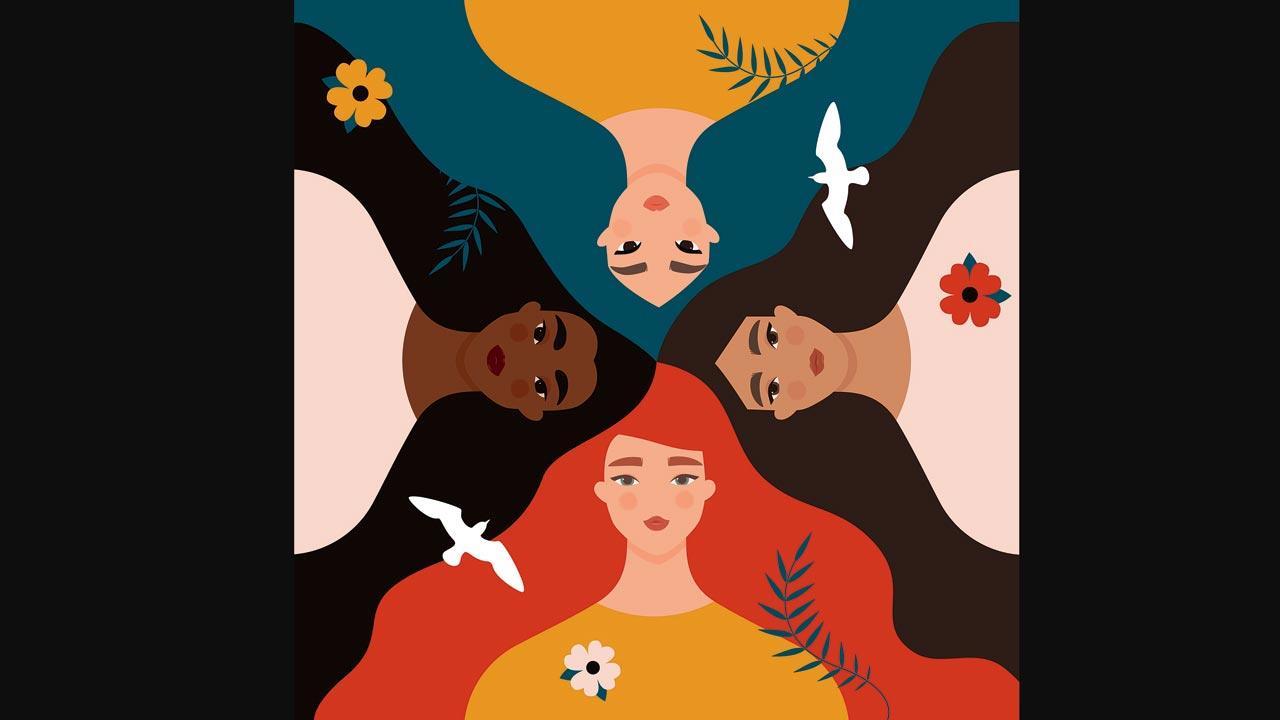Having been the only dark-skinned person around where I am located, I recently found kinship amid the alienation through the virtual presence of a Black feminist during an online conference

It is exhausting to be the sole person of colour, or a minority, in white spaces. Representation pic/Getty Images
There is a loneliness to knowing you’re the only person of colour within a certain radius. The dislocation of migration gets compounded through the inevitable performance of being an exception. When I moved to Tramin, I was of course excited to glimpse at a few other South Asian families, but accessing them hadn’t necessarily been easy. When they’d see me on the street, we’d often acknowledge each other, but I could sense their inability to place me, since, not only is my demeanour manifestly westernised, I’d mostly also be walking with my white partner.
ADVERTISEMENT
In autumn, I was lucky to find a Pakistani woman outside the post office. She addressed me in Italian, possibly to tell me she just realised the office was closed. But I am now more comfortable in German. At first, we were unsure how to communicate, until I switched to my terrible Hindi and she was happy to respond in Urdu. Grammar be darned. We spoke for almost 15 minutes and I remember, that autumn, just feeling so relieved to be able to feel this South Asian intimacy, where you don’t have to necessarily worry about asking very invasive questions because often the information is voluntarily given to you.
The last few days I’ve had to be part of some intense conversations over Zoom, and have frequently had to confront the whiteness of so many discourses. I have major issues with white feminism, just like I have problems with savarna feminism; both are not intersectional enough, both ‘other’ those that are marginal to the norm. Both forms of feminism try to ‘speak for’ rather than ‘seek out’ or ‘listen to’ the voices of people from oppressed castes.
Yesterday, I was asked to participate, as an audience member, in a conversation on violence against women within a South Tyrolean context. However, only one of the three sessions was to be in English, the rest in Italian. I’m barely six-lessons old in Italian, and I mistakenly thought the first session was to be in English, which was not the case. I’d gotten mixed up. As I logged in with my video, I saw a spread of well-intentioned white faces, including two cis-male.
And then I saw the face of a Black woman. Just seeing her there, seeing her present, made me feel like staying. She was to be presenting in English, but towards the end. I stuck around because I really wanted to hear what she had to say, and I knew that we would both be less lonely if we had each other to look at.
Watching her carry the emotional burden of being a Black feminist was empowering. The evening before, on another Zoom call, I had felt like I had spoken too often out of turn. I had felt disturbed by a presentation that had been made by an artist because the perspective felt too white masculinist. When I inarticulately asked about whether his subjectivity had made any space for indigenous discourse, I was made to feel like I was merely repeating a question he had grown tired of answering, even as he politely thanked me for asking it again. To be fair, a huge extension of his and his partner’s work involved facilitating discourses that were then conducted by non-mainstream scholars across disciplines. Still, I wondered if this was a way of outsourcing the intellectual and emotional labour of thinking around the Anthropocene.
It is exhausting to be the sole person of colour, or a minority, in white spaces. You are always conscious of the fact that you are expected to be grateful for the inclusion, and yet, you keep reminding yourself to stay in line, not become an irritant, not be too vocal, not over-present your case. Or at least that was how I had begun to police myself. Mostly because I know that even when I may occupy a position of relative authority within the conversation, it isn’t necessarily a safe space.
That the Black feminist in the conversation yesterday had to pause midway after a comment had been made about a recent instance of racism by an Italian female actress, to remind all the white people not to reproduce harmful language, to refer to the N-word as the N-word and not repeat it, made me angry.
It should be understood, and yet, the fact that it isn’t, even in erudite circles, is rage-inducing. Watching her being assertive, not afraid to call out the whiteness of their gazes, daringly addressing misogynoir — the peculiar and violent misogyny reserved for black women was inspiring. It made me feel less apologetic about occupying the space of the killjoy irritant. It made me feel less alone.
Deliberating on the life and times of Everywoman, Rosalyn D’Mello is a reputable art critic and the author of A Handbook For My Lover. She tweets @RosaParx
Send your feedback to mailbag@mid-day.com
The views expressed in this column are the individual’s and don’t represent those of the paper
 Subscribe today by clicking the link and stay updated with the latest news!" Click here!
Subscribe today by clicking the link and stay updated with the latest news!" Click here!







